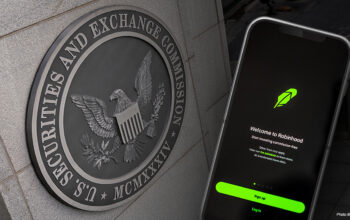ConsenSys, a leading blockchain software company, has launched a legal offensive against the U.S. Securities and Exchange Commission (SEC). The move follows a series of regulatory maneuvers by the SEC aimed at exerting control over the burgeoning crypto landscape.
At the heart of ConsenSys’ lawsuit lies a pivotal question: Is Ethereum (ETH) a security? Seeking clarity and judicial affirmation, ConsenSys aims to debunk the notion that ETH falls under the SEC’s regulatory purview as a security offering.

Central to this debate is the role of staking, a process integral to Ethereunetwork, and whether it transforms ETH into a security. The genesis of ConsenSys’ legal challenge can be traced back to the SEC’s issuance of a Wells Notice, indicating potential enforcement actions against the company. This move underscores the regulatory agency’s intensified scrutiny of crypto enterprises, raising concerns within the industry regarding regulatory overreach.
Key to ConsenSys’ defense strategy is the application of the major questions doctrine, a legal principle asserting that significant policy questions should be addressed by Congress rather than administrative agencies like the SEC. Additionally, the enduring influence of William Hinman’s seminal speech, which provided guidance on the regulatory status of cryptos, looms large in the ongoing saga of crypto regulation.
Consensys’s Lawsuit Against The SEC: Will It End Gensler’s ‘Unlawful Power Grab’?
With its lawsuit, @Consensys aims to settle the question of whether staking turned ether into a security, and to hopefully put an end to what it calls the SEC’s “regulatory overreach.”
On… pic.twitter.com/DwyUKSvJ8h
— Laura Shin (@laurashin) April 26, 2024
The SEC’s recent stance on denying Ether spot exchange-traded funds (ETFs) further fuels industry discontent, prompting a wave of backlash in the form of multiple lawsuits against the regulatory body. Amidst this legal tumult, Texas emerges as a favored battleground for crypto-related legal actions, boasting a regulatory environment perceived as more favorable to industry interests.
Should ConsenSys emerge victorious in its legal crusade, the ramifications for the crypto landscape could be profound. A favorable ruling would not only provide clarity on Ethereum’s regulatory status but also set precedent for future industry dealings with regulatory bodies. As the case unfolds, stakeholders keenly await each step, cognizant of its potential to shape the future trajectory of crypto regulation.



